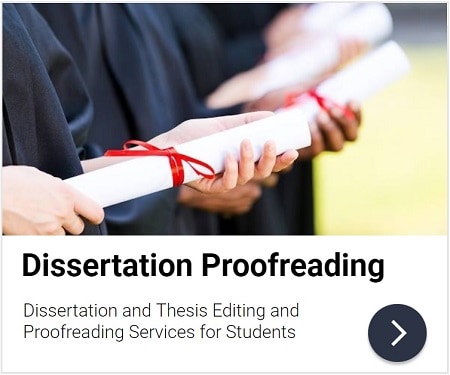4.5 The Final Chapter(s): Discussion, Conclusion, Limitations and Implications
In some theses, the discussion of the study, its results and any concluding thoughts will fill more than one chapter: there may be, for instance, a chapter dedicated to discussion and a shorter conclusion chapter, or perhaps two chapters dedicated to discussing the results of different methodologies and a final chapter on relationships between those different results. In many theses, however, a single chapter will suffice for both. This final part of your thesis is a vital one: it tends to synthesise and analyse all elements of the thesis in order to evaluate and explain the overall significance of the research, and readers will often turn to the discussion (or conclusion) chapter first to obtain an overall picture of a study. The structure of this all-important final material varies considerably from thesis to thesis, yet it is essential that it be designed in a way that allows you to move through a great deal of potentially complicated, analytical and speculative information in an orderly fashion. Considerable reflection is therefore necessary before beginning to write, and not only to get the structure right. That structure depends, of course, on exactly what you intend to include in your discussion chapter(s), and deciding on exactly what to say will take some deep reflective thought on your part.
You may wish to address your plans for your discussion and conclusion chapter(s) with your supervisor and other committee members, and it is also a good idea to see if your department has any guidelines for this part of the thesis, especially if you are feeling unsure about how to proceed and could use some practical advice. In the final analysis, however, you are better acquainted with your research and thus better able to make sense of it than anyone else can be, so you are the only person truly qualified not only to write, but also to design the discussion and conclusion for that research. Besides, this final part of the thesis is your opportunity to express your own perspective and opinions on the significance of your doctoral research, based firmly, of course, on the topic, problem or phenomenon you investigated, your aims and objectives, the methods you used and the results you achieved.
Unfortunately, you may well feel rather exhausted by the experience of drafting your thesis by the time you arrive at your discussion chapter(s), but detailed analysis, intellectual vigour and creative connections are absolutely necessary for discussing and concluding your thesis, and a little passion never hurts either. Doing less than your best at this point would compromise all the effort you have already invested, so take a deep breath and dive into what can in fact be the most challenging and pleasurable part of writing a thesis. There is no simple or universal recipe for successfully discussing and concluding a doctoral thesis and its research, but, generally speaking, an inversion of your opening chapters takes place: in those chapters, you moved your reader from the more general background and scholarship associated with the topic, problem or phenomenon to focus on your particular perspective and approach; in your final chapter(s), you need to use the specific focus you adopted and the results you achieved to move your reader back out to the more general interpretations and implications of your research. In order to achieve this, there are a number of practical approaches and standard expectations that are worthy of serious consideration before forging your own unique path through the forest of possibilities.
Discussing and concluding a thesis effectively might and generally should involve:
- A brief introduction outlining the structure and content of the chapter(s). This can take the form of a single short paragraph, but because the discussion section of a thesis tends to be creative and is always unique, and it is essential that readers understand exactly what you intend, an opening paragraph of this sort can be extremely helpful for clarifying your approach and raising appropriate expectations.
- A brief but informative summary of the study or thesis as a whole. This need only highlight the major issues and can be done efficiently by moving through the individual chapters as outlined in the following four points.
- A return to the introduction of the thesis to restate the most important material introduced there. The research topic, problem or phenomenon should certainly be emphasised, as should its significance, your aims and objectives, and any research questions and hypotheses you introduced and used as guiding factors in your research. You will need to analyse how your research and results answer, resolve and contribute to knowledge in relation to these elements, so any or all of them can effectively be used to structure the chapter, especially if you have used them to organise your report of the results. You may also want to return to the essential aspects of the background and context of your research as discussed in the introduction chapter, but this tends to be necessary only if that background and context is immediately relevant to your discussion and concluding thoughts.
- A return to the literature review to highlight the most important aspects of previous research on your topic and any key theories related to your work in the thesis. Any gaps, misconceptions and limitations that you identified in the scholarship in your earlier literature review should be restated with the goal being to explain exactly how your research and its results have provided what was lacking, established new ways of looking at the problem(s) and thus moved beyond the traditional views and limitations. Your thesis should make an original contribution to knowledge and discussing it in relation to previous scholarship in the area is one of the most effective ways to identify, emphasise and explain that contribution.
- A return to the description of your methodology. This need not be long or detailed, but it sometimes is, and reviewing your main methods and approaches with an eye to evaluating their reliability, limitations and overall effectiveness is an important part of assessing your research. Your understanding of the appropriateness of your methodology may have changed since you first designed your study, particularly as you analysed and reported your results. Your methods may have exceeded or failed to live up to your expectations, or they may have presented limitations or complications you had not envisioned. You may have made errors while putting your methods into practice. Whatever the reality of your methodology proved to be should be explained accurately and objectively, so this is a place for complete if sometimes painful honesty.
- A return to the report of your results to summarise and highlight the key points. There is no need to go through your results in detail – the chapter(s) immediately preceding your discussion has already done that – but since you will need to use the results to discuss the implications and limitations of your research, mentioning the main trends is essential. You should focus particularly on the aspects of your results that you intend to discuss, but try not to leave out any significant or meaningful findings, including surprises, whether they support your research hypotheses or not. Focus and brevity can be achieved by making general statements about the nature of the results and following each statement with the most important examples and details to support it.
- An analysis and interpretation of your research as a whole and its results. This can be included in a step-by-step manner along with the summaries mentioned in the last four points above, or it can be tackled separately after the relevant information from previous chapters has been highlighted. Your approach, like your ideas, for this part of your thesis will require a great deal of reflection and you may find that you have to begin more than once before finding the right direction. The essential question is ‘What does it all mean?’ and the answer can be notoriously difficult to identify and explain both thoughtfully and accurately. It is likely that your research and results will have many meanings, but this is your chance to express your own views and opinions. These should not be whimsical, erratic, biassed or overly subjective, however, but should be solidly and logically based upon your findings. Your interpretations and conclusions should be plausible, insightful and comprehensive, and whenever your ideas are tentative or speculative (as they will necessarily be at times when discussing matters such as causality), your language should clearly indicate that with phrasing such as ‘it seems that,’ ‘these results appear to suggest,’ ‘it is probable that’ and ‘the likely explanation is.’ It is also important to explain how your research and results have resolved the problem you explored, answered your research questions, tested your hypotheses, filled gaps in the scholarship on the topic, revealed the limitations of earlier theories, proved the validity of your methodology and achieved your aims and objectives. If you have not met with success in any of these areas, that, too, should be indicated.
- An identification and analysis of the limitations of your study and its methodology. You may want to write this part along with the review of your main methods, but it can also work as a separate section of the chapter because limitations often extend beyond your methodology (to your findings, for instance). Identifying the limitations of your research and its results is a vital part of your thesis. You may prefer, of course, that there were no or very few limitations, but they are an inevitable aspect of any research, so recognising and discussing them not only demonstrates your intellectual maturity and critical skills, but also makes your research much more useful for future researchers in your area, including yourself. Limitations often stem from the nature of the research design and the exact qualities of the population or sample used, both of which might be called normal limitations that affect the generalisability of your research, but mistakes in controlling the relevant variables, defects in the instruments used or inadequate approaches to recording or analysing data will result in limitations (and perhaps unreliability) of a different kind. If any such limitations proved so significant that it was necessary to adjust your methods and/or repeat any of your research, a discussion of that process, the improvements you made and the ways in which the new results differed can be included as well, though you may want to consult your supervisor about this, as it might be more appropriate to discuss such changes in your methodology chapter(s) instead.
- A discussion of the implications of your research and its results. This will tie into your comments about the significance of your research project as expressed in your introduction to the thesis, but your understanding of that significance may well have changed since you began writing, and you can provide further details as well as more certain conclusions in this chapter based on the results you have presented. Implications, whether for practical action or intellectual reflection, should obviously be directly related to the topic, problem or phenomenon you explored (it can be helpful to imagine what you would tell an audience affected by the problem or phenomenon if you had only enough time to emphasise a few major points), and good use can be made of your research questions and hypotheses as well as your aims and objectives as you construct your discussion. The implications you identify should be considered in relation to the background and context of your research as well as previous scholarship in the area, including both trials and studies of a more theoretical nature – ask yourself how your results build on the literature you reviewed and how your study integrates with or overturns current theories. You may also want to comment on the implications of your methodology, especially if it has been innovative, problematic or extraordinarily successful. You will have a great deal of freedom in expressing your thoughts about your work – the factual reporter of your results chapter has been left behind for the authoritative thinker of your discussion – but be sure that the implications you identify and explain are based firmly and logically upon your research and its results, and when you are theorising, generalising and speculating, ensure that your language accurately reflects those tentative modes.
- One or more recommendations for future research in your area or discipline. Your recommendations for future research will be based to a large extent on the implications and limitations of your own research. It may be that some idealistic researchers start projects with the notion that their work will resolve all associated questions and problems, but this rarely (if ever) happens in reality, and often the answers that are derived from careful and extensive research complicate matters and open more doors on further research needs and possibilities. Your recommendations may involve repeating the kind of research you have done, but with changes that would eliminate the limitations you have identified (by adding controls, for instance, or choosing or developing different instruments, participants or means of analysis), or they may involve taking very different directions by conducting entirely different kinds of research (using entirely different methods perhaps, or focussing from a different perspective on the most unexpected or surprising trends of your results). Remember that your recommendations for future research can transform aspects of your work that may have proved disappointing into positive possibilities.
- A brief conclusion. Since conclusions about your study are a major part of this chapter, a conclusion to it may seem somewhat redundant, but it is important to end on a bright clear note. Sometimes an academic or scientific author will dedicate pages of text to describing, interpreting and speculating upon all the sound and revealing results he or she obtained only to turn at the end of the final chapter to the limitations of the study, which can have the effect of dumping all the wind out of the sails he or she has so carefully and convincingly filled. It may be that the guidelines provided by your university or department call for limitations to be reported at the end of the thesis, and, as an essential aspect of valuable research, limitations need not be negative, especially if they are combined with or (if possible) followed by recommendations for future research. However, after discussing the limitations of your study, it can be useful to return to the unquestionably positive results and conclusions of your research. You might choose, for instance, three main concepts or conclusions that you would like to highlight as you close your text, and these can certainly be qualified with hints of limitations and recommendations while still emphasising the significant contributions of your research. Keep in mind that a doctoral thesis should make a significant and original contribution to knowledge, so highlighting the main ways in which it does so in your final thoughts is not out of place. If there was ever a time to blow your own horn a little, this is it.
Why PhD Success?
To Graduate Successfully
This article is part of a book called "PhD Success" which focuses on the writing process of a phd thesis, with its aim being to provide sound practices and principles for reporting and formatting in text the methods, results and discussion of even the most innovative and unique research in ways that are clear, correct, professional and persuasive.
The assumption of the book is that the doctoral candidate reading it is both eager to write and more than capable of doing so, but nonetheless requires information and guidance on exactly what he or she should be writing and how best to approach the task. The basic components of a doctoral thesis are outlined and described, as are the elements of complete and accurate scholarly references, and detailed descriptions of writing practices are clarified through the use of numerous examples.
The basic components of a doctoral thesis are outlined and described, as are the elements of complete and accurate scholarly references, and detailed descriptions of writing practices are clarified through the use of numerous examples. PhD Success provides guidance for students familiar with English and the procedures of English universities, but it also acknowledges that many theses in the English language are now written by candidates whose first language is not English, so it carefully explains the scholarly styles, conventions and standards expected of a successful doctoral thesis in the English language.
Individual chapters of this book address reflective and critical writing early in the thesis process; working successfully with thesis supervisors and benefiting from commentary and criticism; drafting and revising effective thesis chapters and developing an academic or scientific argument; writing and formatting a thesis in clear and correct scholarly English; citing, quoting and documenting sources thoroughly and accurately; and preparing for and excelling in thesis meetings and examinations.
Completing a doctoral thesis successfully requires long and penetrating thought, intellectual rigour and creativity, original research and sound methods (whether established or innovative), precision in recording detail and a wide-ranging thoroughness, as much perseverance and mental toughness as insight and brilliance, and, no matter how many helpful writing guides are consulted, a great deal of hard work over a significant period of time. Writing a thesis can be an enjoyable as well as a challenging experience, however, and even if it is not always so, the personal and professional rewards of achieving such an enormous goal are considerable, as all doctoral candidates no doubt realise, and will last a great deal longer than any problems that may be encountered during the process.
Interested in Proofreading your PhD Thesis? Get in Touch with us
If you are interested in proofreading your PhD thesis or dissertation, please explore our expert dissertation proofreading services.


Services
PhD Dissertation Proofreading
Our PhD dissertation proofreaders specialise in improving grammar, sentence structure, citations, references, clarity, logical flow and readability.
Master’s Dissertation Proofreading
To avoid failure and its consequences, send your dissertation to our master’s dissertation proofreading service.
Scientific Dissertation Proofreading
Our scientific proofreaders specialise in correcting and perfecting the language, editorial styles and references across all science fields.
Headquarters
Dissertation-Proofreading.com
Allia Future Business Centre
The Guildhall
Market Square
Cambridge
CB2 3QJ
United Kingdom
More Expert Proofreading Services
Journal Editing
Journal article editing services
PhD Thesis Editing
PhD thesis editing services














